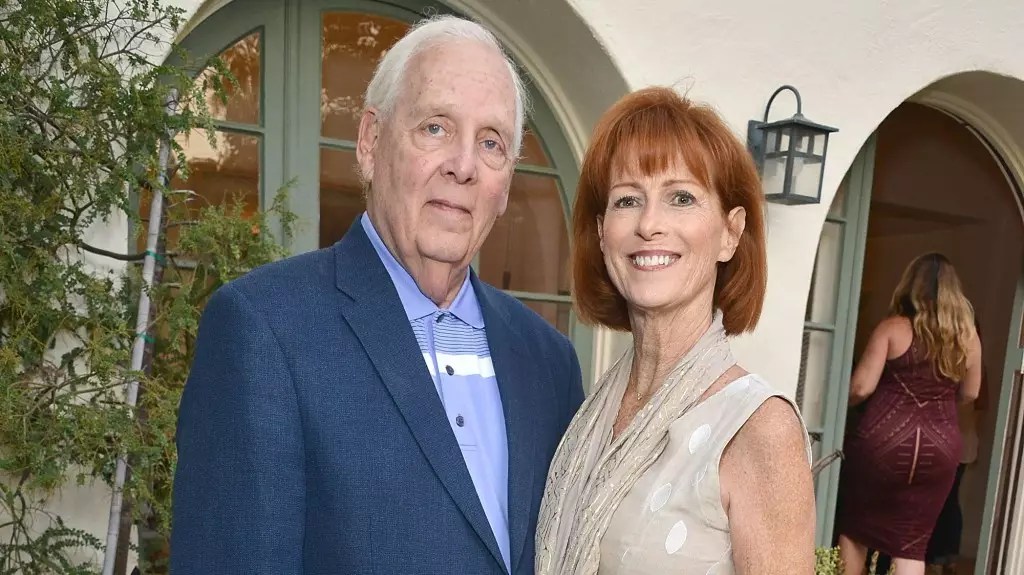Woody Fraser, the influential television producer and director, passed away at the remarkable age of 90. His death on Saturday marked the end of an era in television history that he profoundly shaped through shows like “The Mike Douglas Show” and “Good Morning America.” His contributions to the entertainment industry spanned over seven decades, reflecting not only his talent but also the evolution of television itself. As a testament to his impact, Fraser garnered numerous Daytime Emmy nominations and won an award in 1982 for “The Richard Simmons Show,” a production that he co-created with his wife, Noreen Fraser, who succumbed to breast cancer in 2017. The dynamic duo often collaborated, underscoring their shared commitment to delivering quality television content.
Fraser’s remarkable ability to blend entertainment with relevant news helped establish “Good Morning America” as a leader in morning broadcasting. His vision for the show allowed it to claim its place as a staple in American households, a feat achieved during his tenure as the first executive producer. This role not only showcased his unique directorial style but also highlighted his understanding of audience engagement and the importance of quality content. His passing leaves a significant gap in the industry that is hard to fill.
Beginning his career in 1960 at NBC, Fraser introduced several groundbreaking concepts in television. Most notably, his partnership with Mike Douglas led to the co-host format that would become a standard in many talk shows that followed. “The Mike Douglas Show,” which premiered shortly thereafter, showcased Fraser’s innovative approach and quickly became one of the longest-running and beloved talk shows in history. His ability to oversee multiple shows simultaneously, handling an impressive 32.5 hours of programming weekly between 1966 and 1973, is a remarkable achievement in its own right.
In addition to Douglas’ show, Fraser was involved in various productions, including “The Dick Cavett Show,” “The Della Reese Show,” and “The Family Challenge.” He not only entertained but also pushed boundaries, introducing several groundbreaking formats that challenged conventional television narratives. His lengthy portfolio further includes classics such as “That’s Incredible!” and “Home & Family,” highlighting his diversity and adaptability in a rapidly changing media landscape.
Fraser’s influence extended beyond mere entertainment; he was also an advocate for important social issues. He lent his support to his wife’s telethons for Stand Up to Cancer, successfully uniting major networks like ABC, NBC, and CBS to raise over $100 million for cancer research and awareness. This kind of philanthropic endeavor demonstrates Fraser’s understanding of the social responsibilities that come with the power and reach of television, showcasing a commitment to making a positive impact on society.
Yet, not all aspects of Fraser’s career were unblemished. In 2018, he faced a wrongful termination and sexual harassment lawsuit initiated by two former employees of “Home & Family.” These allegations resulted in Fraser’s departure from Hallmark Channel amid claims brought forth by multiple female staffers, which were ultimately taken up by attorney Lisa Bloom. This chapter in his career serves as a reminder that even the most celebrated figures can helm controversies that demand accountability and reflection.
Woody Fraser’s death signifies the loss of a television pioneer whose influence changed the landscape of American media. Throughout his storied career, he mentored numerous industry players, such as former Arkansas Governor Mike Huckabee, who emphasized Fraser’s role as a mentor and a “TV pioneer.” His legacy encapsulates a blend of innovation, creativity, social responsibility, and the realities of facing challenges within a complex industry. He leaves behind an indelible mark that will continue to inspire future generations in the world of television production and beyond. As we reflect on his contributions, Fraser’s work stands as a cornerstone of quality broadcasting, reminding us of the potential to entertain and inform in a way that resonates with audiences across the nation.


Leave a Reply